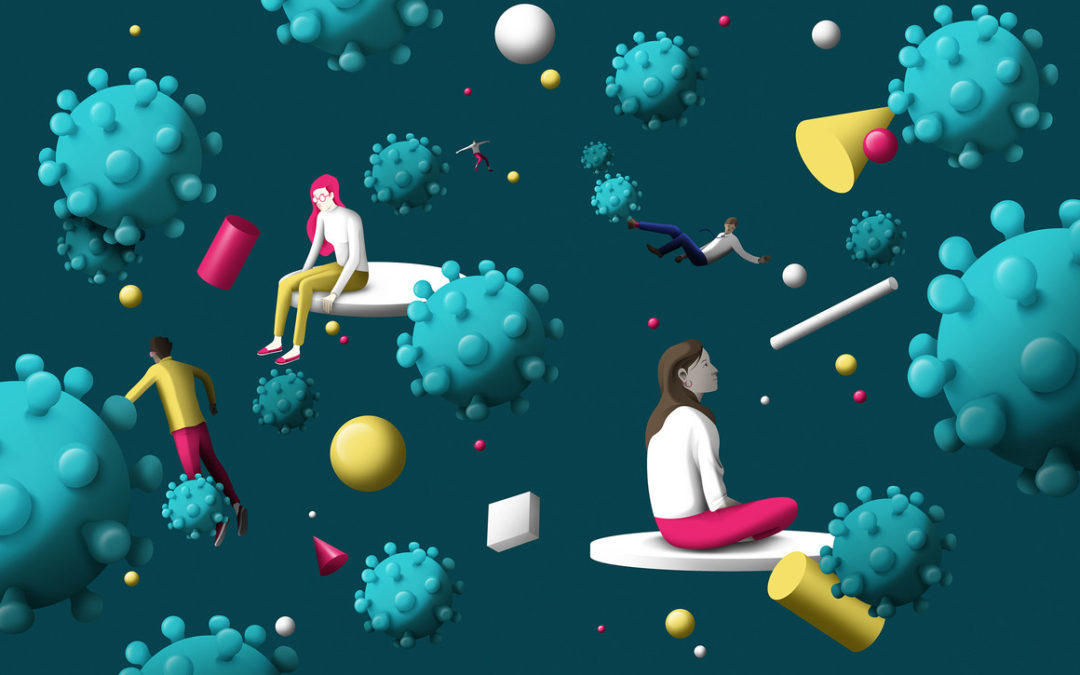When only a few months ago at the beginning of these unprecedented times I often said and heard others say, how they couldn’t wait to get back to “normal”. As time went by, it seemed that we talked less about getting back to “normal” and more about wondering what the “new normal” would look like. What of these COVID-times would stay with us, and what once we had a vaccine, would we want to leave behind? On the continuum of changes would we deem some adaptations desirable and others less so?
We have been transformed. How now do we retain the best of what our forced lessons have taught us, while embracing once again old behaviors and interactions we’ve missed and longed for? How can this period of our societal evolution be compared to grief, and to the dissolution to evolution?
Social distancing, lockdown, asymptomatic, contact tracing, flattening the curve, herd immunity, the list goes on. Life in lockdown was unimaginable a few months ago. And yet new language and novel terms that go hand-in-hand with the novel coronavirus have since become commonplace. Adjusting to social distancing practices and reduced human connectivity is difficult and unsettling for many, and a dream come true for others.
There are interesting parallels to draw between isolation, divorce and grief. On Death and Dying by Swiss-American psychiatrist Elisabeth Kubler Ross outlines the stages of grief: denial, anger, bargaining, depression and acceptance. Although these stops are not linear, whatever non-linear path one takes creates the strength to learn to live with loss. With death this loss is of a loved one. With COVID-19 it may be a loss of independence, and with divorce the loss of a long-standing relationship. Although not directly comparable, reduced autonomy is something those intoxicated with the freedoms of “typical” life (what some call “the old normal”) have had to face abruptly, and it is a loss.
We must adjust. Without acceptance there is no peace, and without peace there is no ability to fully embrace life. Divorce involves grief and so too does COVID-19; no matter the circumstances, like death, they both involve loss––the loss of a dream, a vision, an expectation, as well as often a lifestyle and social and familial relationships.
Because traditional divorce laws don’t account for the emotional contours of a marriage, when divorce is seen only as a legal process people often become embittered and are left to wander paths that lead nowhere. In contrast to that paradigm, when the loss is named and recognition is given to it, people can be freed from the chains of their own minds allowing them to accept and heal, find peace and grow. With COVID-19 riding in the sidecar it’s essential that the needs of both divorcing parties and any children are considered in the context of our “new normal”, the world we are remaking through fits and bursts some of our own making and some being thrust upon us.
I wish us all the grace and peace we need to lead us to acceptance but recognize that before we can arrive there, we need to process our individual and collective grief.
Postscript: I wrote this blogpost in collaboration with Francesca Singer, my daughter and summer intern, who will soon be returning to Colby College as a rising senior where like so many of our youth she will be navigating college life amidst COVID-19.

